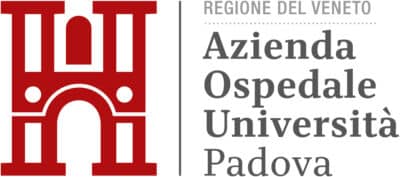

The First-level Short Specialisation Degree in The nurse as a case manager prepares nurses to play a fundamental role in coordinating health and social care interventions based on the needs of individuals and families. This type of management guarantees that resources are allocated properly, that costs are kept down, and that assistance is provided to the patient, accompanying them throughout the entire hospitalisation process, working with other professionals on operational decisions and planning interventions so as to avoid duplication of services and to improve wait times in order to reduce recovery time as much as possible.
The course goes in-depth on the topic of Case Management, a process based on integration and collaboration among professionals from different disciplines and professional areas, which all adhere to the principles of “caring for” the patient to guarantee continuity and quality in throughout their clinical assistance journey.
This First-level Short Specialisation Degree is focused on relational aspects, having positive relationships with other professional corporate, and local figures thanks to the acquisition of a wide range of skills.
The academic portion of the First-level Short Specialisation Degree in The nurse as a case manager includes five modules or integrated courses aimed at developing specific nursing skills, along with interdisciplinary seminars that go more in-depth. At the end of each module, there is to be a learning check along with a satisfaction survey for those in the course.
The educational offering is rounded out with mentoring initiatives in specific contexts.
There is to be a first module including a supervised internship in operational environments that will include direct experience with case management in assisting patients recovered in hospitals, led by the “case manager tutor” and lasting one week. There is to be a second internship module that will allow students to go more in-depth in company environments where they can gain experience in case management for coordinating assisted-discharge patients, healthcare evaluations, and cases needing assistance at home.
At the end, the student will be asked to come up with an improvement report focused on the work environment.
The First-level Short Specialisation Degree in The nurse as a case manager is meant for professionals with the following degrees:
three-year degree in Health Professions, Nursing, Midwifery; specialised degree in Nursing and Midwifery Sciences; university degree in Nursing Sciences.
This figure brings together the general skills acquired during their studies with the new knowledge and specialised abilities acquired during the First-level Short Specialisation Degree’s programme, as a way of moving up in terms of professional level.
The First-level Short Specialisation Degree in The nurse as a case manager will provide training in:
Module 1: RESEARCH AND EVIDENCE-BASED PRACTICE
Methods aimed at integrating professional decisions with scientific evidence, clinical experience, and the characteristics of patients. Using the proper statistical tools for describe phenomena in the clinical environment, analysing materials, methods and results from scientific journals critically, identifying best nursing practices in specific healthcare settings, after critical analysis of the literature found in the main databases.
Module 2: CASE MANAGEMENT
The key figure of this method is the Case Manager, a professional that takes on all of the needs of the patient, avoiding fragmentation and identifying it as the one managing complexity. The objective is to put into place a different service package for each patient to guarantee the effective continuity of the clinical pathway.
Module 3: CLINICAL PATHWAYS AND CONTINUITY OF CARE
Clinical pathways employ the professional integration/service network model and the multidimensional assessment tools applied in the specific area. They analyse continuity of care and experiences in application. They identify the main care quality indicators for potential or proposed clinical pathways.
Module 4: ROLE MANAGEMENT
Ability to appropriately coordinate teams in order to identify the best possible project for the patient. Develop effective communication methods to manage relationships across the board with the different players and with the patient himself/herself. Manage the work team according to the principles of service leadership. Increase awareness of the professional role of the case manager and foster the development of consistent thought processes and behaviours.
Module 5: DEVELOPMENT OF CLINICAL COMPETENCIES
Clinical competences are the result of knowledge, skills and technical abilities, of professional, managerial, relational and operational qualities of each individual specialist in the specific healthcare context. The objective is to recognise the main needs and problems in the clinical conditions of the user and to schedule and implement nursing activities in the various phases, whether in the hospital or on the local level, as part of the case-management process.
Furthermore, the programme also includes these IN-DEPTH INTERDISCIPLINARY SEMINARS:
- Palliative care offered in the home environment and district services
- Coordinating transplants
- Clinical risk management
The Nurse Case Manager focuses on the relational aspects and is, therefore, able to have positive relationships with other professional corporate and local figures, thanks to the acquisition of a wide range of skills: the ability to communicate effectively and assertively, to negotiate, to be able to read the situation, to develop creativity, to know how raise and resolve issues, to know how to work in a group, with a cultural shift of the idea of work, from task to profession, in an environment that values the internal customer.
The general ranking of merit will be published on the Italian page of this Master according to the timing provided in the Call.
Information
FAQ
There is a first supervised internship module that is actually hands-on with direct case-management experience in helping patients recovered in hospital contexts, led by the “case manager tutor” and lasting one week (five days). There is to also a second internship module that will allow students to go more in-depth in more corporate environments where they can gain experience in case management for coordinating assisted-discharge patients, healthcare evaluations, and cases needing assistance at home. The internship wraps up with a final project carried out by those in the programme.
Lectures are held in person with distance learning laboratory activities. Attendance is 70% compulsory, meaning the attendance of academic lectures.
There are 45 lecture days, scheduled between November 2025 and September 2025. There are generally about five days per month spread over several days of the week, alternating over two weeks and with at least two consecutive days. The annual lecture calendar is given out at the beginning of the Master’s programme, including the date the final project is to be discussed.
There are to be five exams, one for each of the academic modules, graded by the professor, along with a final project.

